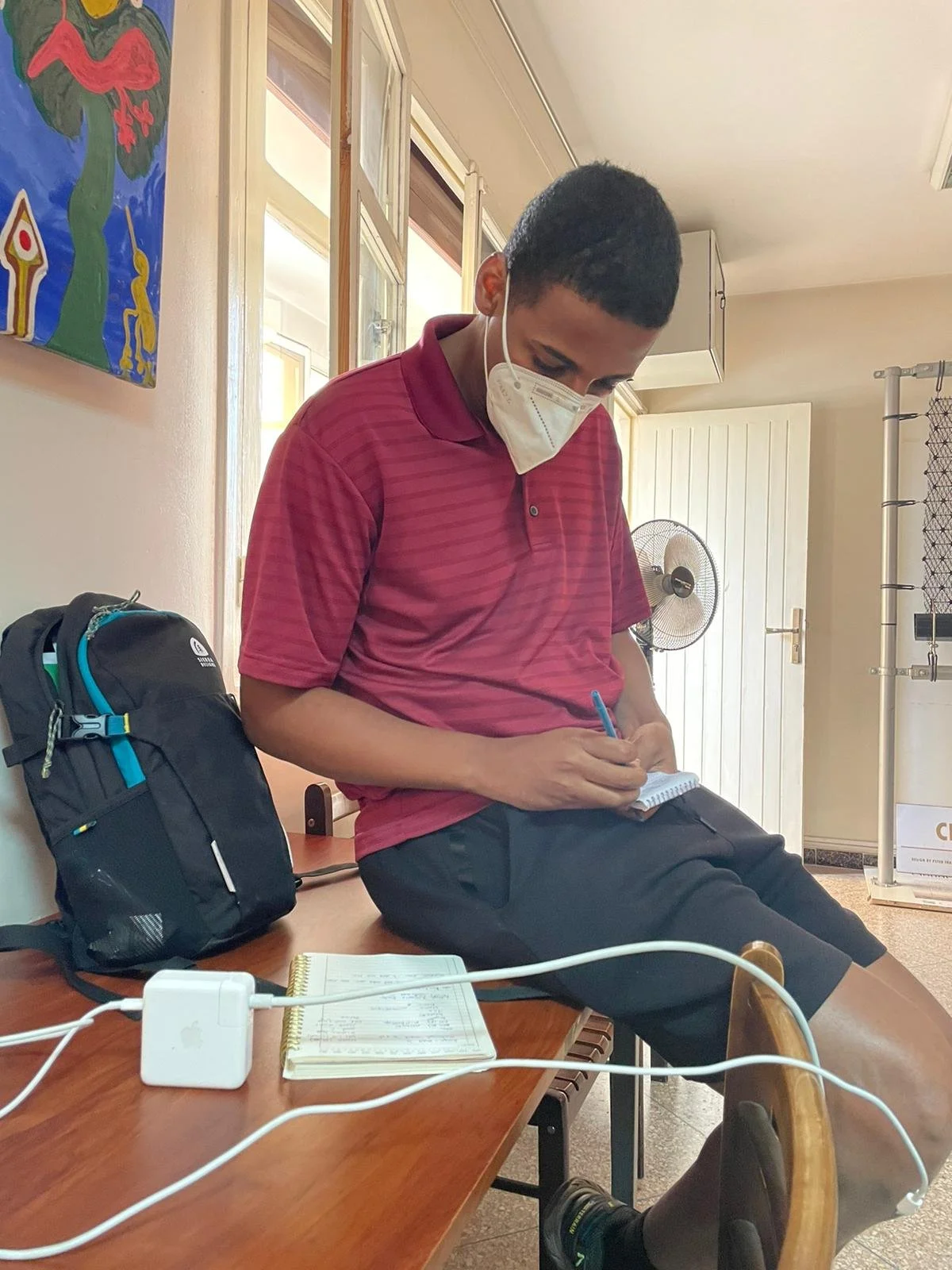Blog #9 First Darija/Moroccan Arabic lesson
Dar Si Hmad Educational Project Manager, Noura Amayous, giving the students their first Moroccan Arabic language lesson
Ssalam Alaikum!
Alaikum Ssalam!
These are the most common greetings in Moroccan Arabic or Darija (as well as standard Arabic), so our instructor, Noura, began our first Darija lesson with these phrases. Darija is a dialect of Arabic unique to Morocco. It is a mix of Arabic, Tamazhigt, and European languages like French and Spanish. In any country, knowledge of a local language is useful for understanding the culture, meeting new people, getting around, and safety. Many cultural nuances are embedded in language. As a result, it follows that we would receive Darija lessons while in Morocco!
After learning the most universal greetings, we went on to cover greetings for different times of the day such as:
Sbah lkhair/Sbah nour/Sbah lward = Good morning
Msa lkhair = Good afternoon
Tsbah 3la khair (m)/Tsbahi 3la khair (f) = Good night
Additional vocabulary words we learned during our first class include:
Kif dayer/dayera = How are you? (m/f)
Labas 3lik = How are you?
Alhamdulilah = Thanks be to Allah/God
Bikir = Great
Labas = Fine
Pronouns in Darija are:
Ana- I
Nta- You (masculin)
Nti- You (feminine)
Hiya-Her (f)
Huwa-Him (f)
7na-Us
Ntoma-You all
Huma-They
Learning a language is a slow process. It requires a language learner to have patience and not be afraid of making mistakes. Everyone learns at their own pace and proficiency is a product of gradual progress. Nevertheless, our lesson would need to be immediately put to practice later that day. Our first Darija lesson was on a Friday morning, just in time for our scheduled Friday couscous lunch with a Moroccan family. I used the 10-15 Darija words that I picked up and each one was received with enthusiasm. The most frequently used words I used during that lunch were:
Bnina = Tasty
Shebet = I am full
Baraka = Enough
The couscous was delicious, and we were very well fed. The language lesson also continued at the Moroccan home that we visited. Some phrases that I was able to practice there included:
Shnu smitek? = What’s your name?
Ana simiti….. = My name is…..
Ana kent3lem darija. = I am learning Darija.
Fortunately, our hosts also knew English, so the Darija lesson was facilitated by English. There is a proverb that says “you live a new life for every new language you speak.” By taking language classes here in Morocco, we are benefiting from learning about a different worldview in addition to the immediate usefulness of the language lessons we have while here.
-Written by Yoel Gebrai
Yoel has constantly been hard at work learning Moroccan Arabic, studying during breaks and bus rides. After the Morocco program, Yoel will spend 10 months in Ghana on a Fulbright and learn another language, Twi.

